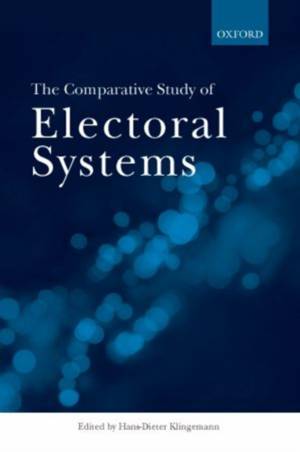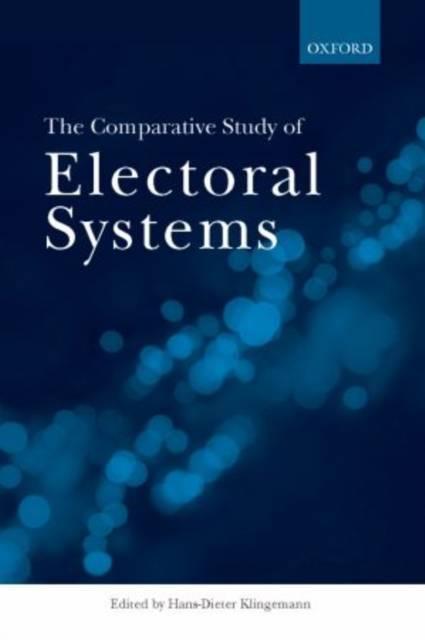
- Afhalen na 1 uur in een winkel met voorraad
- Gratis thuislevering in België vanaf € 30
- Ruim aanbod met 7 miljoen producten
- Afhalen na 1 uur in een winkel met voorraad
- Gratis thuislevering in België vanaf € 30
- Ruim aanbod met 7 miljoen producten
Zoeken
The Comparative Study of Electoral Systems
€ 111,45
+ 222 punten
Omschrijving
Citizens living in presidential or parliamentary systems face different political choices as do voters casting votes in elections governed by rules of proportional representation or plurality. Political commentators seem to know how such rules influence political behavior. They firmly believe, for example, that candidates running in plurality systems are better known and held more accountable to their constituencies than candidates competing in elections governed by proportional representation. However, such assertions rest on shaky ground simply because solid empirical knowledge to evaluate the impact of political institutions on individual political behavior is still lacking. The Comparative Study of Electoral Systems has collected data on political institutions and on individual political behavior and scrutinized it carefully. In line with common wisdom results of most analyses presented in this volume confirm that political institutions matter for individual political behavior but, contrary to what is widely believed, they do not matter much.
Specificaties
Betrokkenen
- Uitgeverij:
Inhoud
- Aantal bladzijden:
- 464
- Taal:
- Engels
- Reeks:
Eigenschappen
- Productcode (EAN):
- 9780199642397
- Verschijningsdatum:
- 7/04/2012
- Uitvoering:
- Paperback
- Formaat:
- Trade paperback (VS)
- Afmetingen:
- 155 mm x 231 mm
- Gewicht:
- 698 g

Alleen bij Standaard Boekhandel
+ 222 punten op je klantenkaart van Standaard Boekhandel
Beoordelingen
We publiceren alleen reviews die voldoen aan de voorwaarden voor reviews. Bekijk onze voorwaarden voor reviews.










